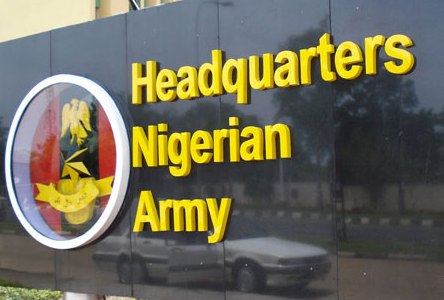Northern Nigeria’s insecurity at critical turning point
By Mubarak Abdullahi Koli
Northern Nigeria, once celebrated for its cultural refinement, hospitality, and vast opportunities, now stands at one of its most challenging moments in history. A region that previously offered pathways to social mobility and peaceful coexistence has steadily descended into widespread insecurity, poverty, and humanitarian distress. This reality is not accidental. It is the cumulative outcome of decades of structural neglect and leadership failures, as highlighted in assessments by the UNDP (2021) and World Bank (2023).
For years, those who rose to prominence through the region’s rich social capital, strong educational foundations, and communal support systems have, in many instances, become the architects of its stagnation. Motivated by personal interest, political rivalry, or the desire to safeguard privilege, some elites have distanced themselves from the collective responsibility of building a secure and prosperous North. As leadership philosophies often stress, systems that elevate individuals from nothing to greatness are meant to uplift entire communities, not only the privileged few (UAE Leadership Doctrine, 2019).
Northern Nigeria today faces a double crisis, one of security and one of identity. Persistent issues such as unemployment, poverty, limited access to healthcare, and illiteracy have been compounded by an alarming rise in out-of-school children, particularly within the Almajiri system (UNICEF, 2022). Instead of reforming this traditional structure into a modern model that integrates Islamic and Western education, vocational training, and social protection, society has watched millions of children slip into vulnerability. Many end up as domestic help, street hawkers, or in the worst cases, easy targets for criminal recruitment.
The plight of the girl child is equally concerning. In numerous communities, young girls are still denied access to quality education, subjected to early responsibilities, or pushed into street hawking, practices inconsistent with both Islamic guidance and our cultural heritage. According to UNESCO (2021), the widening gender gap continues to hinder the region’s development trajectory.
These generational lapses have fueled the insecurity now ravaging the region. While insecurity affects different parts of Nigeria, the frequency and brutality of terrorism, banditry, and kidnapping in the North remain unprecedented. It is alarming that for more than a decade, non-state actors who are poorly trained, poorly equipped, and lacking legitimate authority have overpowered a country with intelligence structures, trained personnel, and advanced security technology.
School closures by state and federal governments illustrate how dire the situation has become. They raise critical governance questions. How can criminal groups consistently outmaneuver a sovereign state with vast security institutions. What systemic weaknesses have made this possible. These questions can no longer be ignored.
Yet Northern Nigeria still holds tremendous potential. With its population strength, strategic advantage, and vast human capital, the region can overcome its challenges if sincerity, unity of purpose, and political will are restored. Leadership alone is not the issue. Followers too must abandon practices that promote division, reward unethical conduct, or weaken community cohesion.
Citizens and community members have a major role to play. Security begins at the community level. Reporting suspicious activities, supporting security agencies with accurate information, and prioritizing the education and moral upbringing of children remain essential steps in reversing the region’s decline.
Traditional rulers remain vital voices in the search for stability. Historically, traditional institutions ensured safety through vigilance, mediation, and community cohesion. Their moral authority is needed now more than ever to engage stakeholders, advocate for strategic interventions, and reinforce values that once kept communities secure. Silence is no longer an option.
Religious leaders hold immense influence over millions. Beyond doctrinal differences, there is a shared obligation to preach peace, responsibility, and respect for human life. A society in turmoil cannot progress, and their unified guidance can play a transformative role in restoring hope and moral clarity.
The Arewa Consultative Forum must rise to this defining moment. What is needed is not only communiques but strategic engagement with government institutions, security agencies, civil society, and community leaders. With its historical legitimacy and reach, the Forum can help shape a new security direction for the region.
Northern governors and federal authorities must act decisively. Security must take precedence over political competition or capital projects. Infrastructure means nothing when citizens cannot live to enjoy it. Governors must unite beyond party lines, embrace sincerity of purpose, and demonstrate the political will necessary to halt the region’s decline. Failure risks pushing communities toward dangerous self-help alternatives.
Northern Nigeria and the nation as a whole deserve a future defined by peace, prosperity, and equal opportunity for all, regardless of tribe, religion, or social class. The time for collective, sincere, and courageous action is now.
Bldr. Mubarak Abdullahi Koli, MNIOB



Comments are closed, but trackbacks and pingbacks are open.